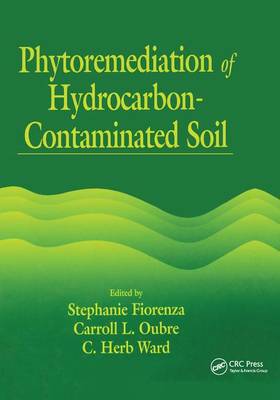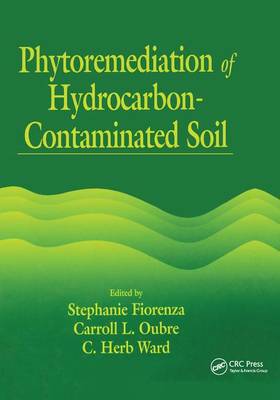
Bedankt voor het vertrouwen het afgelopen jaar! Om jou te bedanken bieden we GRATIS verzending (in België) aan op alles gedurende de hele maand januari.
- Afhalen na 1 uur in een winkel met voorraad
- In januari gratis thuislevering in België
- Ruim aanbod met 7 miljoen producten
Bedankt voor het vertrouwen het afgelopen jaar! Om jou te bedanken bieden we GRATIS verzending (in België) aan op alles gedurende de hele maand januari.
- Afhalen na 1 uur in een winkel met voorraad
- In januari gratis thuislevering in België
- Ruim aanbod met 7 miljoen producten
Zoeken
€ 132,95
+ 265 punten
Uitvoering
Omschrijving
Interest in phytoremediation as a solution for contaminants in groundwater and soil has exploded. The project documented in Phytoremediation of Hydrocarbon Contaminated Soils presents innovative technology for environmental clean up using in situ treatment. It describes the results of a field study focusing on hydrocarbon contamination, especially polynuclear aromatic hydrocarbons, in surface and near surface soils. The field demonstration used soils contaminated with aged diesel fuels. The random block design enabled the investigators to test the statistical difference in the effects of different vegetated and unvegetated treatments. They tested the degradation of diesel and polynuclear aromatic hydrocarbon components in plots containing three different vegetation treatments, two grasses and a legume, and a non-vegetated control. Part one of the monograph gives a complete and thorough account of the results of the field study. Part two covers the design and potential costs of a full-scale implementation of the demonstration system as well as the performance and potential application of the new technology. Phytoremediation of Hydrocarbon Contaminated Soils supplies quantitative results about the use of vegetation in soil remediation. The information given on the niches and limitations of the technologies allows for a more informed selection of remedial solutions for environmental cleanup.
Specificaties
Betrokkenen
- Auteur(s):
- Uitgeverij:
Inhoud
- Aantal bladzijden:
- 192
- Taal:
- Engels
- Reeks:
Eigenschappen
- Productcode (EAN):
- 9780367399542
- Verschijningsdatum:
- 27/09/2019
- Uitvoering:
- Paperback
- Formaat:
- Trade paperback (VS)
- Afmetingen:
- 178 mm x 254 mm
- Gewicht:
- 344 g

Alleen bij Standaard Boekhandel
+ 265 punten op je klantenkaart van Standaard Boekhandel
Beoordelingen
We publiceren alleen reviews die voldoen aan de voorwaarden voor reviews. Bekijk onze voorwaarden voor reviews.









